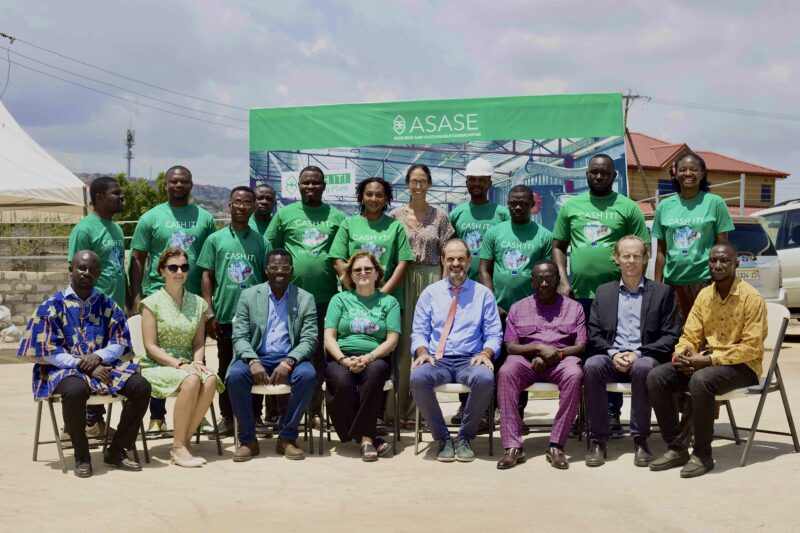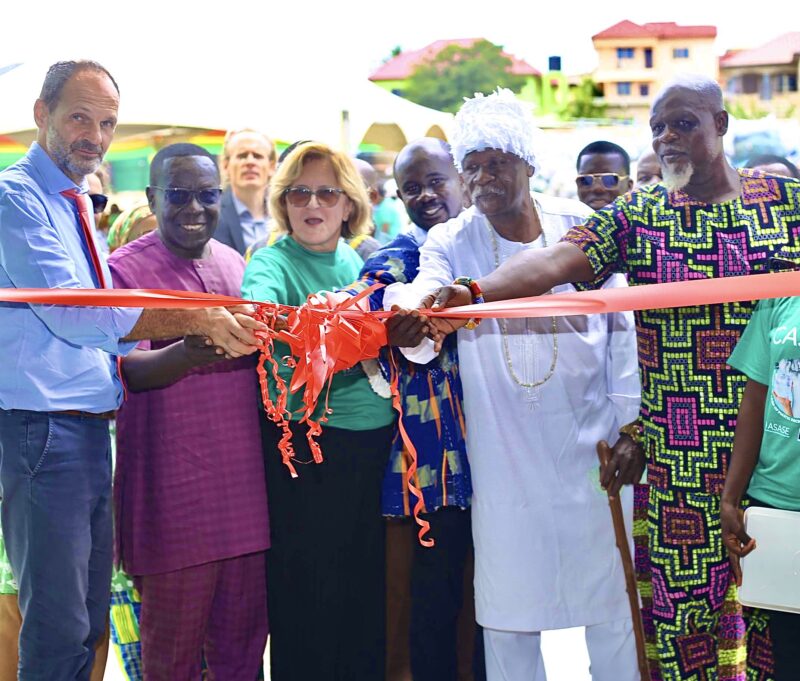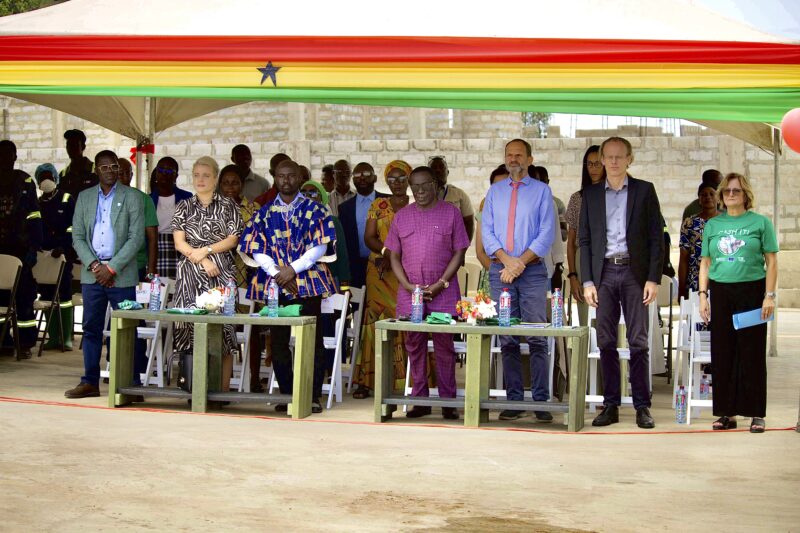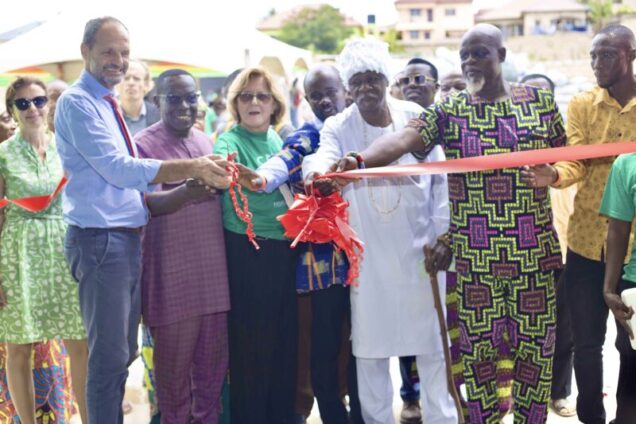
Audio By Carbonatix
The European Union, Alliance to End Plastic Waste and ASASE Foundation have commissioned a cutting-edge plastic lumber factory with an impressive capacity of 2,000 tonnes.
This marks a significant step towards promoting sustainable practices and reducing plastic waste in Ghana.
The factory, located in Weija, Accra, is part of the ASASE Foundation's "Closing the Loop of plastic packaging" project, aimed at empowering women entrepreneurs and promoting a circular economy.
This initiative is funded by the European Union and the Alliance to End Plastic Waste.

The factory's operations will include collecting and processing plastic waste, shredding, washing, and drying, and producing flakes and pellets for various applications.
“This innovative project showcases the EU's commitment to supporting Ghana's sustainable development and circular economy goals; It will provide jobs for local women and men, reduce plastic waste in oceans and landfills, promote sustainable practices in Ghana and empower women entrepreneurs through training and support” the Head of Cooperation, European Union in Ghana, Massimo Mina said.
Philippe Montagne, Regional Projects Director, EMEA Project Director at the Alliance to End Plastic Waste said, “ASASE’s successful deployment of a third recycling plant can be attributed to their limitless commitment towards addressing the plastic waste challenge in Ghana.

"The Alliance is pleased to support the team of incredibly motivated women at ASASE who were instrumental to the achievement of this latest milestone.”
The Managing Director of ASASE Foundation, Dana Mosora said, “At ASASE, we call this launch a success and we believe the recipe to such success is finding good partners and building a powerful team to drive the project forward.”
The plant is expected to create over 38 jobs across its warehouse, reprocessing lines, and conversion line, with the majority of these positions filled by women from the neighboring communities of Weija and Gbawe.

The employees will receive on-the-job training to operate machinery and develop relevant management skills necessary to run the plants.
This initiative not only supports local employment but also empowers women, fostering economic growth and social development within the community.
Latest Stories
-
Adom FM’s ‘Strictly Highlife’ lights up La Palm with rhythm and nostalgia in unforgettable experience
2 hours -
Ghana is rising again – Mahama declares
5 hours -
Firefighters subdue blaze at Accra’s Tudu, officials warn of busy fire season ahead
6 hours -
Luv FM’s Family Party In The Park ends in grand style at Rattray park
6 hours -
Mahama targets digital schools, universal healthcare, and food self-sufficiency in 2026
6 hours -
Ghana’s global image boosted by our world-acclaimed reset agenda – Mahama
6 hours -
Full text: Mahama’s New Year message to the nation
6 hours -
The foundation is laid; now we accelerate and expand in 2026 – Mahama
7 hours -
There is no NPP, CPP nor NDC Ghana, only one Ghana – Mahama
7 hours -
Eduwatch praises education financing gains but warns delays, teacher gaps could derail reforms
7 hours -
Kusaal Wikimedians take local language online in 14-day digital campaign
8 hours -
Stop interfering in each other’s roles – Bole-Bamboi MP appeals to traditional rulers for peace
8 hours -
Playback: President Mahama addresses the nation in New Year message
8 hours -
Industrial and Commercial Workers’ Union call for strong work ethics, economic participation in 2026 new year message
10 hours -
Crossover Joy: Churches in Ghana welcome 2026 with fire and faith
10 hours

